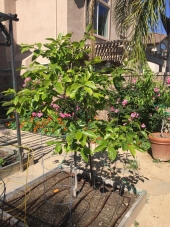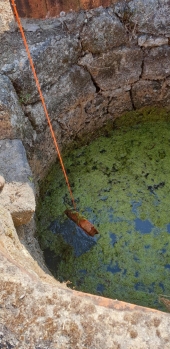
 4
4




 3
3




Leah said, What methods can I use to change my water without a constant flow of electricity? Thanks for your time and advice!
Invasive plants are Earth's way of insisting we notice her medicines. Stephen Herrod Buhner
Everyone learns what works by learning what doesn't work. Stephen Herrod Buhner

 4
4




How Permies works: https://permies.com/wiki/34193/permies-works-links-threads
My projects on Skye: The tree field, Growing and landracing, perennial polycultures, "Don't dream it - be it! "
 4
4




 2
2




 2
2




Invasive plants are Earth's way of insisting we notice her medicines. Stephen Herrod Buhner
Everyone learns what works by learning what doesn't work. Stephen Herrod Buhner
 3
3




John Daley Bendigo, Australia The Enemy of progress is the hope of a perfect plan
Benefits of rainfall collection https://permies.com/t/88043/benefits-rainfall-collection
GOOD DEBT/ BAD DEBT https://permies.com/t/179218/mortgages-good-debt-bad-debt




 2
2




Air and opportunity are all that stand between you and realizing your dreams!




Leah Holder wrote:Hi fellow Permies!
I have been growing a wide spectrum of trees on 2 acres in rural South Dakota USA. The property used to have a trailer house on it in the 70s and has a well, but now holds only my little shack and apples, pears, raspberries, plums, blackberries, and most importantly-hazelnuts. I had the well shocked and sealed 3 years ago because of a bacterial issue, afterwards it was no longer present. The other test results didn’t really stay with me-I was new and if the water was safe for my dog to drink that should be good enough. Funny thing is, the trees survived but failed to thrive. I tested again this year and the hardness and alkalinity are both 9.5. and high Calcium. I should have opened my eyes when the hydrangea I bought started to tank the first week.
Here’s the dilemma. I don’t live here full time, I just visit several times a week. The pump runs off a Honda generator I fire up when it’s time to water. Hauling water in from town isn’t an option. What methods can I use to change my water without a constant flow of electricity? Thanks for your time and advice!
Air and opportunity are all that stand between you and realizing your dreams!

|
This tiny ad dresses like this just to get attention:
Creating your Off-Grid Homestead by Teri Page
https://permies.com/wiki/207444/ebooks/Creating-Grid-Homestead-Teri-Page
|



